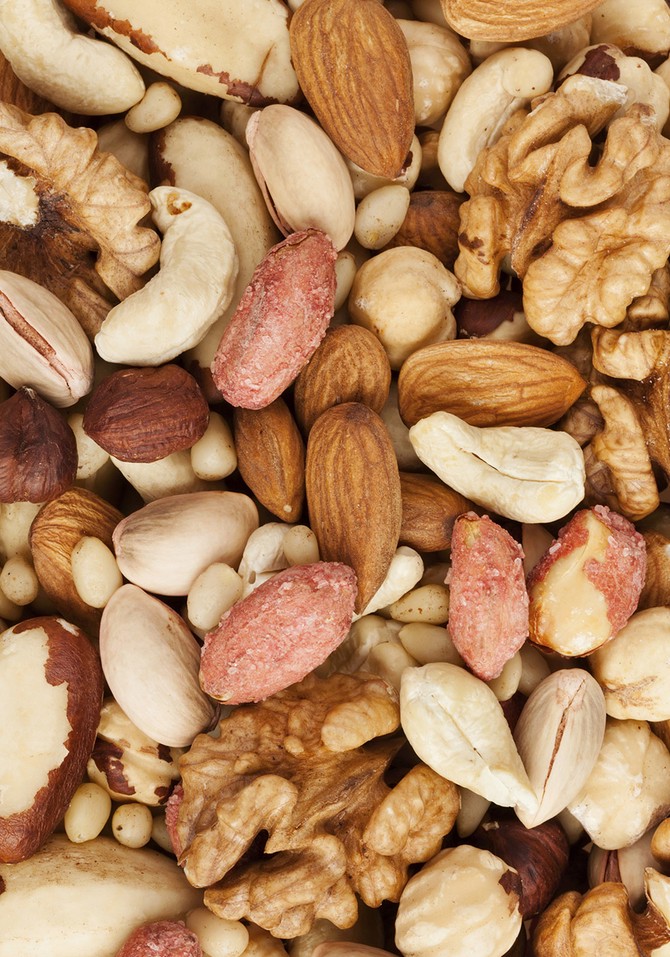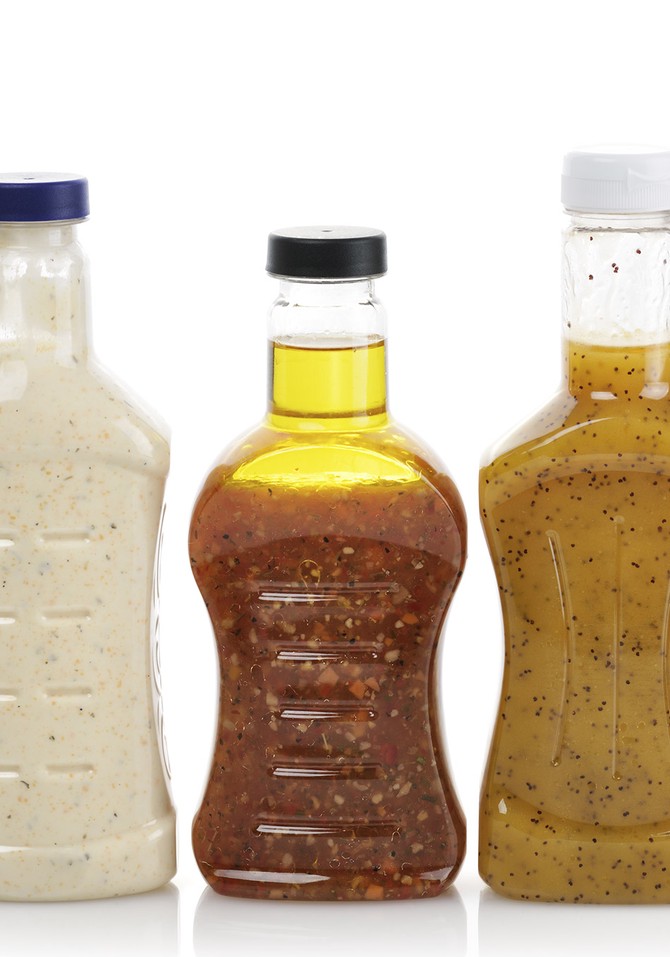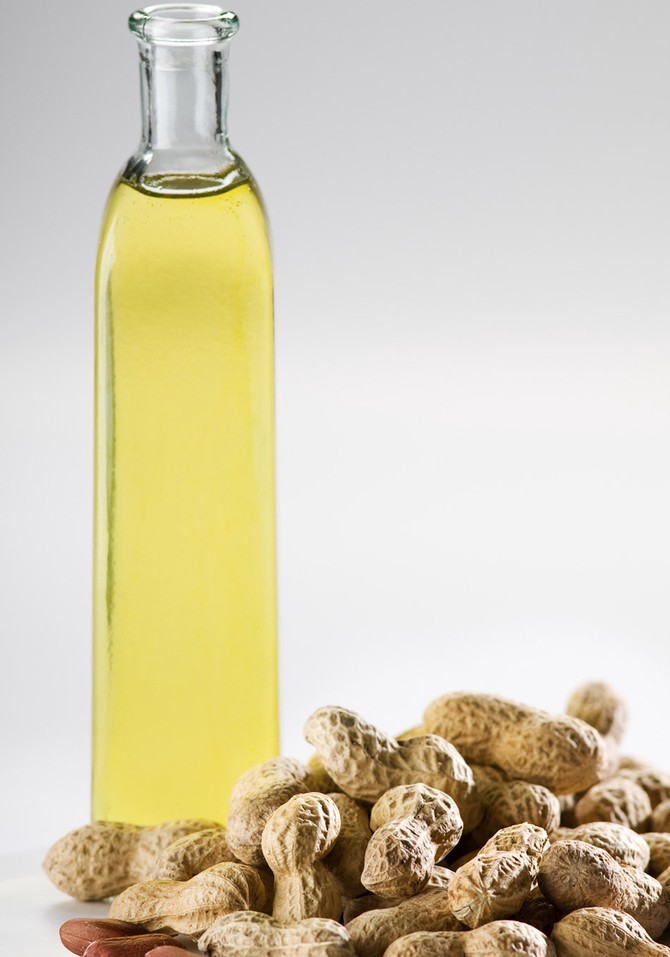4 Things to Buy in Bulk—and 3 to Buy in Small Quantities
You already know about toilet paper and lightbulbs, but there are some less obvious purchases you should stock up on to save money, too.
By Lynn Andriani

Photo: iStock/Thinkstock
Buy It in Bulk: Butter and Nuts
Just as some superorganized people begin their holiday shopping while still in T-shirts, smart shoppers get a head start on supplies for the cookies they'll be baking come December. Butter can be pricey (and many cookie recipes require at least a stick), but Collin Morgan, blogger at the coupon and savings site Hip2Save.com, says it's deeply discounted when you buy large quantities at warehouse clubs. You can get 4 pounds of unsalted butter at Costco for $10.49, which comes out to $2.62 a pound; while a supermarket charges about $4.99 for a pound.
The same goes for nuts, most of which can last in the freezer for one to two years. A 2-pound bag of walnuts is about $12 at Sam's Club, or $.38 per ounce, while at a supermarket you'll pay closer to $.90 per ounce. Bonus: Both nuts and butter are perishable, but freeze wonderfully, so you can buy now and bake later. The one baking item you don't want to buy in bulk, however, is a spice, such as cinnamon or nutmeg. Unless you're going in with a friend and splitting that 10-ounce jar, it'll probably lose its flavor before you finish using it.
The same goes for nuts, most of which can last in the freezer for one to two years. A 2-pound bag of walnuts is about $12 at Sam's Club, or $.38 per ounce, while at a supermarket you'll pay closer to $.90 per ounce. Bonus: Both nuts and butter are perishable, but freeze wonderfully, so you can buy now and bake later. The one baking item you don't want to buy in bulk, however, is a spice, such as cinnamon or nutmeg. Unless you're going in with a friend and splitting that 10-ounce jar, it'll probably lose its flavor before you finish using it.

Photo: Norma Cornes/iStock/Thinkstock
Less Is More: Medicine Cabinet Staples
Morgan, who checks the prices at Costco about once a month, says deodorant and other personal-care items can actually be more expensive when you buy them in bulk. You're much better off at the grocery store or drugstore, since these retailers often discount health and beauty products to get customers into the store. And while most warehouse clubs don't allow manufacturers' coupons, supermarkets and drugstores absolutely do. By using one (look for them on the manufacturer's Facebook page), or even two (you can usually also add a store coupon), you just might walk out of the store with a practically free stick of deodorant or tube of toothpaste.

Photo: Graasa Victoria/Hemera/Thinkstock
Buy It in Bulk: Gift Cards
Whether you're giving them as presents or keeping them for yourself, gift cards are a better deal when you buy more of them. They're available for anything from movies (we found 10 tickets to any AMC theater for $85), to restaurants (five $20 gift cards to Peet's Coffee for $80), to music and app downloads (a 4-pack of $25 iTunes gift cards for $95). And while we're on the subject of giving, if you're still sending old-fashioned greeting cards (yay for tradition!), many Etsy sellers offer bulk discounts, such as this one which offers any six designs in her collection for $20.

Photo: iStock/Thinkstock
Less Is More: Salad Dressing
The golden rule of buying in bulk is computing the cost per unit (just make sure you know what you're comparing). And when it comes to salad dressing, mayonnaise and other condiments, doing a calculation is smart, but there's more to consider. Morgan has calculated the price per ounce on salad dressings at warehouse clubs and supermarkets, and found that if the supermarket is having a sale, she can actually get it for less (and don't fear generic brands: Some chefs actually prefer them). Even more important, though, is that it can be near impossible to finish that gallon jug of Caesar salad dressing before its expiration date passes.

Photo: Elena Elisseeva/iStock/Thinkstock
Buy It in Bulk: Batteries
Lithium batteries, which are common in consumer electronics, have a great shelf life, so they're perfect for buying in large quantities. Stored at room temperature, or at about 70 degrees, they'll last 10 to 15 years (just keep them out of reach of children, since they can be dangerous if swallowed). Alkaline batteries—the ones shaped like cylinders—have a slightly shorter, but still very good, lifespan: about 5 to 10 years, in storage. One exception: Rechargeable batteries lose 1 percent of their deliverable energy every day, so only purchase those as needed.

Photo: Dusan Zidar/Hemera/Thinkstock
Less Is More: Peanut Oil
We know cooking oils don't last forever, but until we saw this chart, we had no idea just how quickly they can go rancid. For instance, peanut oil, which is excellent for achieving the crispiest crust on a chicken drumstick, will keep for two years in your pantry (after you open it). If you're making fried chicken for six, you'll probably go through about 64 ounces of oil, which is a size that most supermarkets sell for $7, or even less. If you buy a larger size and don't fry foods often, the oil will likely go bad before you finish it (signs to look for: an off smell or a change in color).
Published 11/16/2015

